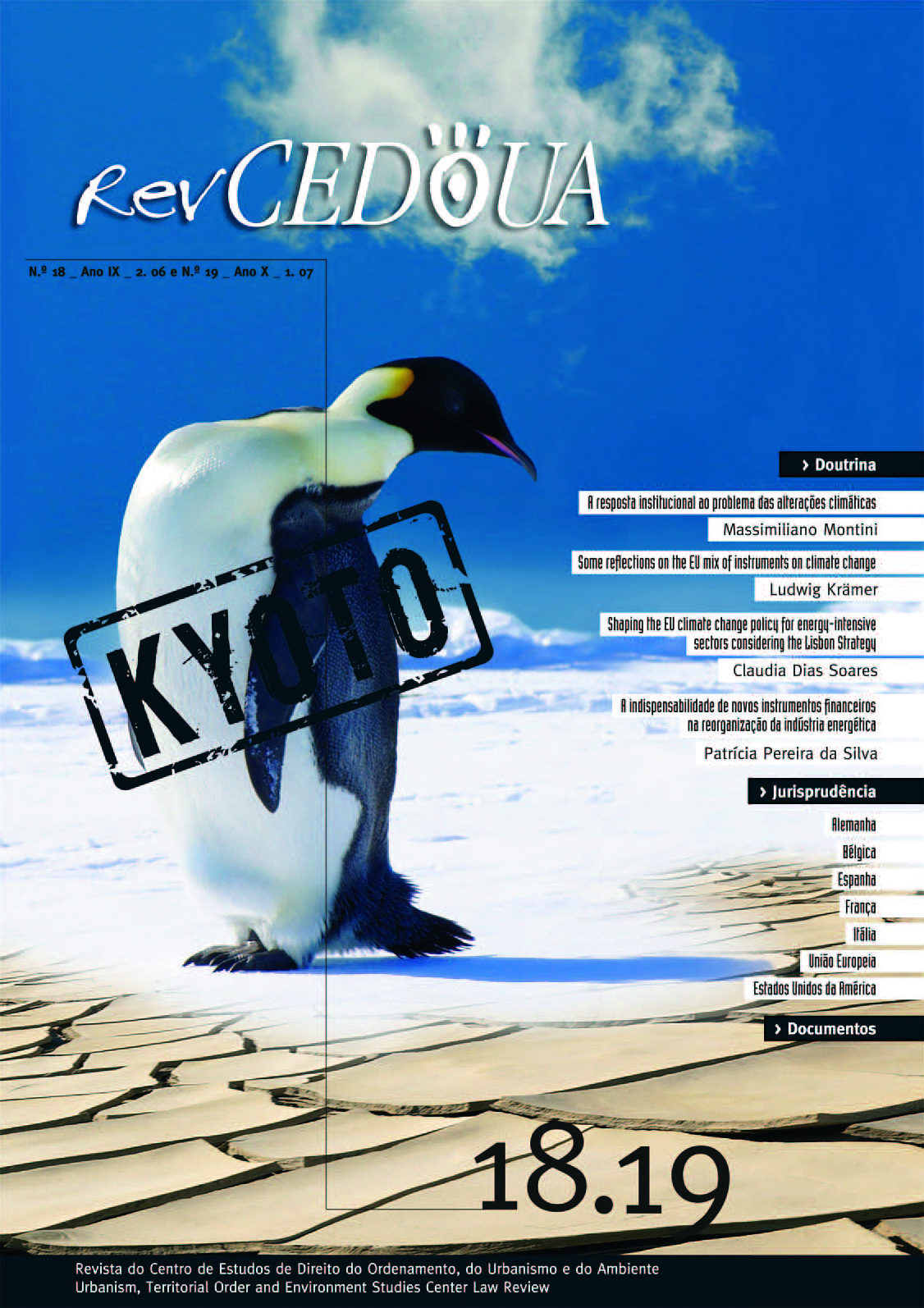The institutional response to the problem of climate change
DOI:
https://doi.org/10.14195/2182-2387_18-19_1Abstract
The article outlines the general framework of international action against climate change, driven by the United Nations and the European Union.
It covers the development from the first conventions on the protection of the ozone layer to the resolutions of the United Nations General Assembly, including the role of the Intergovernmental Panel on Climate Change, describing the main steps leading to the Framework Convention on Climate Change. Regarding the Convention, the article explains its objectives, foundational principles, and the obligations of the parties. The main focus, however, is the Kyoto Protocol, detailing the negotiation conditions, final normative options, and especially the flexibility mechanisms established.
Subsequent developments and progress achieved through the various Conferences of the Parties, following the adoption of the Kyoto Protocol up to the Bali Conference in 2007, provide a clear view of the strengths and weaknesses of this conventional instrument.
Finally, the article presents the follow-up carried out by the European Union regarding international efforts against climate change, with references to the main directives and action plans adopted at the European level.
Downloads
Downloads
Published
Issue
Section
License
Copyright (c) 2006 Massimiliano Montini

This work is licensed under a Creative Commons Attribution 4.0 International License.
Authors retain copyright and grant the journal right of first publication with the work simultaneously licensed under a Creative Commons Attribution License that allows sharing the work with recognition of authorship and initial publication in Antropologia Portuguesa journal.



